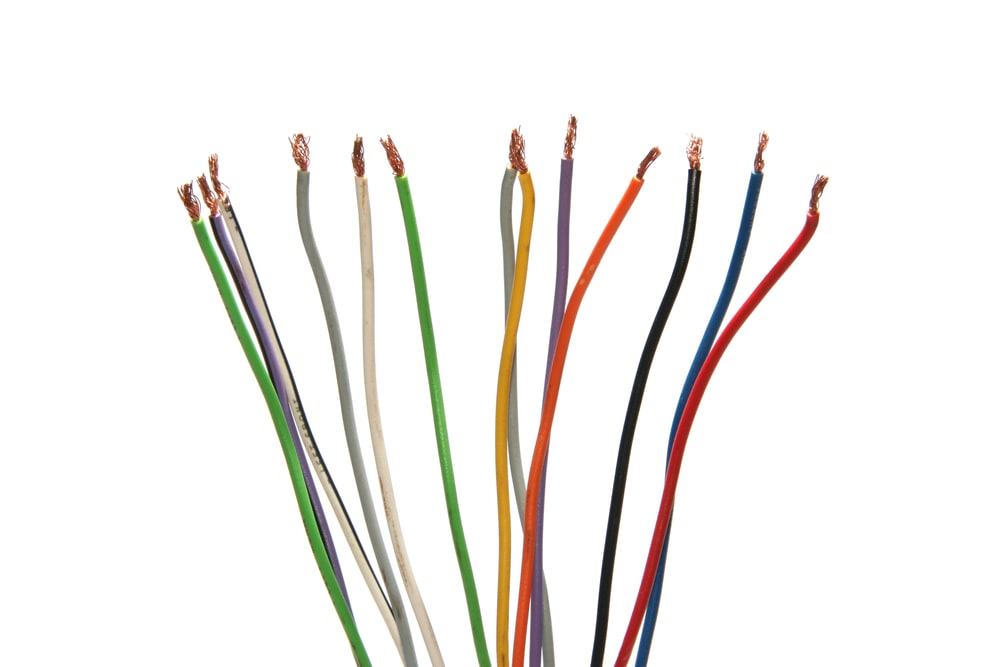
different types of wires
A Wire is
a long, flexible, cylindrical-shaped rod metal.
Everyone knows that a wire is used to carry
mechanical loads (Electricity) and telecommunications signals.
Wires are used in almost every electrical appliance that we see around us like “Television”, “Iron”, “Smartphone Charger”, “Tube lights”, “Switches” and many more.
for further information please click the links given below-
https://www.youtube.com/watch?v=NSM4Plikj1A
https://www.youtube.com/watch?v=DLebG2bo76I
So how is it made?
It is not made up of just a single strand of the rod but is a collection of such strands in a cross-section arrangement to serve a particular purpose.
These strands are made
up of different metals like Copper, Silver, Aluminium, etc., and are covered with an insulating material mainly rubber.
Wires can be made in square, hexagonal or flat rectangular shapes for decorative or
technical purposes.
A wide variety of
wires are used in our daily life so one should be able to differentiate between them.
Some commonly
used Wires are:
1. Solid Wire:
Here Solid means solid-core or a single strand
of wire.
So this wire is made up of a single piece of metal.
It is mainly used for
wiring breadboards.
It is cheaper
than any other wire so it is used where there is little need for elasticity in the wire.
Solid wire also provides mechanical strength.
2. Stranded Wire:
Stranded Wire is a collection
of small wires, bundled or wrapped
together to form a larger single conductor.
It is more
flexible than Solid Wire with the same cross-sectional area.
It is a better
conductor than Solid Wire as individual wires collectively provide a greater surface area.
It is mainly used
in musical instrument
cables, computer mouse cables, mining machine cables, welding electrode cables, etc.
3. Braided Wire:
A Braided Wire is similar to Stranded
Wire in a way that it is also composed of small strands of wire
braided together.
But the braided wire is a better conductor and is stronger than Stranded Wire.
It does not
break easily when stretched.
These are used in noise-reduction cables and provide electromagnetic shielding.
4. Triplex Wire:
Triplex wire or Triplex service drop cable is
made up of two insulated phase
conductors twisted around a bare
aluminum alloy or neutral conductor.
The conductor is mainly an aluminum alloy wire and black thermoset cross-linking
polyethylene is used as insulation.
The neutral conductor is a small gauge
grounded at both the electric meter
and the transformer.
It is most suited for a secondary distribution between poles of a transformer.
5. Non-Metallic Sheathed Wire:
Non-Metallic Sheathed Wire also known as Romex, is used as house wire which has 2 or 3 conductors each
with plastic insulation, and a grounded wire.
The outer sheath is a non-metallic, flame-retardant, and moisture-resistance type of
material.
It is relatively cheaper than other wires and is preferred for in-house wiring.
Also, it is available
in different ratings for 15, 20, and 20
amps.
One can know more
about wires from their colors as different
colored wires serve different purposes like:
Red: Hotwire, for switch legs, for connecting wire between 2
smoke detectors.
Yellow and Blue: Hotwires, pulled in conduit. Yellow for
switch legs to control fans, lights and blue for 3-4 way switch application.
Green and Bare Copper: For grounding purposes only.
White: Neutral
Black: Hotwire, for switches or outlets.
Wires can be made in square, hexagonal or flat rectangular shapes for decorative or technical purposes.
Easy Nirman Construction was Never Easy Before Us









No Comments yet ...